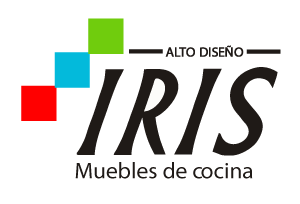Why Traders Are Flocking to the OKX Wallet for CEX Integration and Staking Rewards
Whoa! Ever had that moment when you’re juggling multiple crypto apps and wallets and think, “There’s gotta be a simpler way”? Yeah, me too. Trading’s already a wild ride—throw in managing separate wallets, staking platforms, and centralized exchanges, and it’s easy to feel like you’re spinning plates. So, naturally, I started digging into how some tools are making life easier, especially for folks who want tight integration with centralized exchanges like OKX.
At first glance, the whole wallet ecosystem seemed cluttered. Different wallets, different staking options, and honestly, some clunky user experiences. But then I stumbled upon the okx wallet. Something felt off about how seamlessly it connects to the OKX exchange. I mean, most wallets promise integration, but this one actually delivers on it. My instinct said this was worth a deeper dive.
Trading tools have evolved, but the real game-changer for me was how the OKX wallet bridges the gap between DeFi-style wallets and CEXs. Seriously? Yeah. You get the flexibility of a non-custodial wallet, yet the convenience of direct CEX access for spot trading and staking rewards—all in one place. That’s a combo I didn’t know I needed until I used it.
Okay, so check this out—staking rewards usually feel like a separate chore. You have to move coins around, lock them up, track yields manually, and pray nothing goes sideways. But with the OKX wallet, staking is baked into your trading flow. You can stake assets directly from your wallet interface, and the rewards just keep rolling in without the usual hassle. It’s like having a mini passive income machine right there.
Here’s the thing. On one hand, staking through centralized exchanges sometimes raises eyebrows because of custody concerns. Though actually, the OKX wallet seems to mitigate that by giving you control over your keys while still tapping into OKX’s staking programs. It’s not purely decentralized, but it’s a savvy middle ground that appeals to traders who want both control and convenience.
Let me back up a bit and share how I personally used it. I was experimenting with a few tokens, weighing whether to hold or stake. The wallet’s interface let me seamlessly switch between trading on OKX and staking those same tokens without hopping between apps. It saved me time and mental bandwidth—very very important when markets move fast.
Something else that bugs me about many wallets is clunky UX—too many steps, confusing jargon, or slow confirmations. The okx wallet nails this by combining a clean UI with powerful features. It’s like they thought about what traders actually do daily and built around that. Not just some generic crypto wallet.

Now, I’m not 100% sure if this wallet is perfect for everyone. For instance, if you’re hardcore about complete decentralization, the partial CEX integration might feel like a compromise. But for most US-based traders looking for a reliable, integrated solution, it’s a breath of fresh air.
Trading tools in crypto often feel fragmented. You trade on one platform, stake on another, and keep your funds in a separate cold wallet. The OKX wallet flips that script by offering a unified experience. Plus, having direct access to CEX features from a wallet reduces risk from moving funds repeatedly—something even seasoned traders overlook sometimes.
Also, the wallet supports multiple tokens and chains, which is super handy. No need to juggle five different wallets for your various assets. And it syncs nicely with OKX’s exchange order books, so you can react quickly to market moves without delay.
Hmm… I wonder if this kind of integration will become the norm. Maybe wallets will evolve into full-fledged trading hubs, blending DeFi freedom with CEX power. That might shake up how we think about custody and trading altogether.
Why CEX Integration Matters More Than Ever
Look, centralized exchanges still dominate trading volumes, especially in the US. Regulations and security concerns make them the go-to for many traders. But the problem is always switching between wallets and exchanges—time lost, fees spent, and sometimes, security risks. The OKX wallet’s tight CEX integration really cuts through that friction.
Initially, I thought it would just be a wallet with a fancy connection to OKX’s platform. But then I realized it’s more like a hybrid tool. It lets you keep custody of your funds while still placing orders directly on OKX, staking assets, and managing rewards—all from the same app. This hybrid approach seems tailored for traders who want the best of both worlds.
Here’s a quick anecdote: I was caught in a sudden market dip and wanted to move quickly. Normally, I’d have to transfer funds from a wallet to the exchange, wait for confirmations, then trade. But with the OKX wallet, it took seconds. That speed can literally make or break your trade.
On the flip side, there are always trade-offs. Some might argue that relying on CEX integrations still exposes you to exchange risks, like hacks or restrictions. True, but if you can control your keys and only connect when you want, that risk gets minimized. It’s about finding balance—something the OKX wallet clearly aims for.
Plus, staking rewards through centralized platforms tend to be more stable compared to DeFi yields, which can be volatile or risky. So combining staking with CEX access in one wallet gives traders a nice safety net, especially in uncertain markets.
Whoa! And if you’re into passive income streams, this wallet’s staking feature is a nice touch. You don’t have to be a DeFi whiz or jump through hoops. Just stake, relax, and watch the rewards accumulate while still having your funds ready for trading.
By the way, if you want to check it out yourself, the okx wallet website has all the details—super straightforward. I’m biased, but I think it’s one of the better wallet-integrated trading tools out there right now.
Anyway, I’m curious—do you think wallets with deep CEX integration will replace traditional wallets? Or will separate tools always have a place? For me, this feels like a glimpse into crypto’s more practical future, where convenience doesn’t mean sacrificing control.
Frequently Asked Questions
Can I trade directly from the OKX wallet without transferring funds?
Yes! The OKX wallet allows you to place trades on the OKX exchange directly through the wallet interface, eliminating the need for separate transfers and saving time.
Is staking through the OKX wallet safe?
While staking via the OKX wallet leverages centralized exchange programs, you retain control over your private keys, which adds a layer of security compared to fully custodial solutions.
Does the OKX wallet support multiple cryptocurrencies?
Absolutely. It supports a variety of tokens across multiple blockchains, making it convenient for traders with diversified portfolios.
